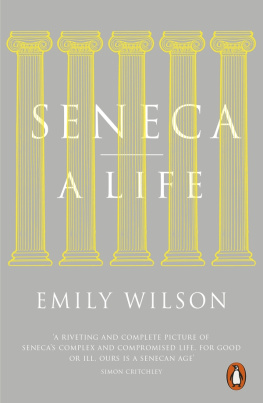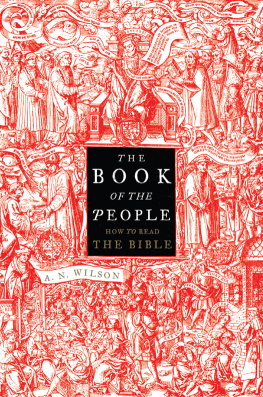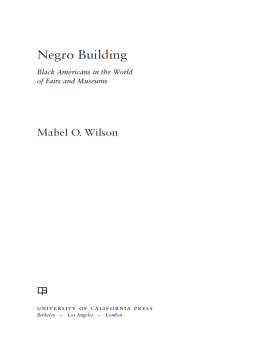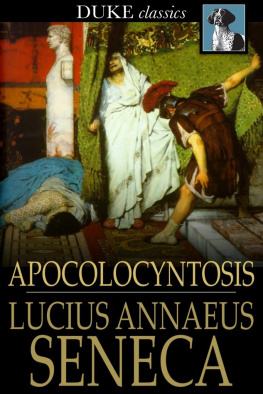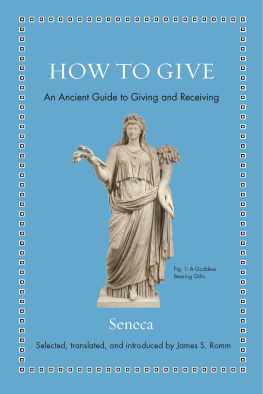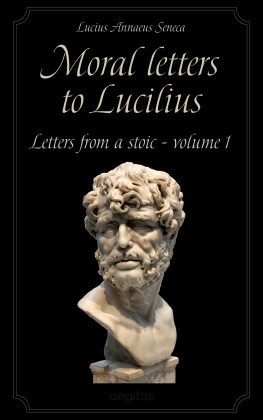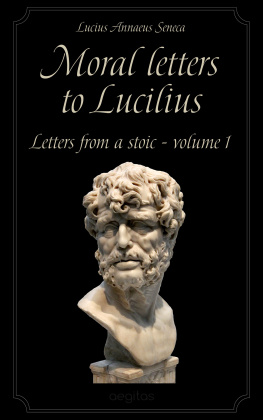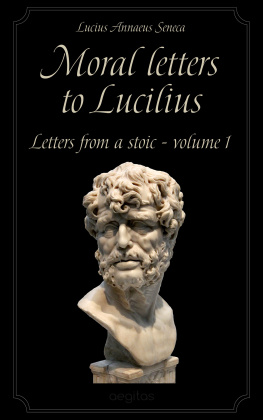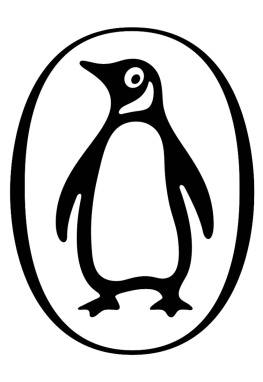Wilson - Seneca: A Life
Here you can read online Wilson - Seneca: A Life full text of the book (entire story) in english for free. Download pdf and epub, get meaning, cover and reviews about this ebook. City: UK, year: 2016;2014, publisher: Penguin Books Ltd, genre: Non-fiction. Description of the work, (preface) as well as reviews are available. Best literature library LitArk.com created for fans of good reading and offers a wide selection of genres:
Romance novel
Science fiction
Adventure
Detective
Science
History
Home and family
Prose
Art
Politics
Computer
Non-fiction
Religion
Business
Children
Humor
Choose a favorite category and find really read worthwhile books. Enjoy immersion in the world of imagination, feel the emotions of the characters or learn something new for yourself, make an fascinating discovery.
- Book:Seneca: A Life
- Author:
- Publisher:Penguin Books Ltd
- Genre:
- Year:2016;2014
- City:UK
- Rating:4 / 5
- Favourites:Add to favourites
- Your mark:
- 80
- 1
- 2
- 3
- 4
- 5
Seneca: A Life: summary, description and annotation
We offer to read an annotation, description, summary or preface (depends on what the author of the book "Seneca: A Life" wrote himself). If you haven't found the necessary information about the book — write in the comments, we will try to find it.
Seneca: A Life — read online for free the complete book (whole text) full work
Below is the text of the book, divided by pages. System saving the place of the last page read, allows you to conveniently read the book "Seneca: A Life" online for free, without having to search again every time where you left off. Put a bookmark, and you can go to the page where you finished reading at any time.
Font size:
Interval:
Bookmark:



UK | USA | Canada | Ireland | Australia
India | New Zealand | South Africa
Penguin Books is part of the Penguin Random House group of companies whose addresses can be found at global.penguinrandomhouse.com.

First published in the United States of America by Oxford University Press 2014
First published in Great Britain by Allen Lane 2015
Text copyright Emily Wilson, 2014
Cover design: Coralie Bickford-Smith
The moral right of the author has been asserted
ISBN: 978-1-846-14638-1

Let the conversation begin...
Follow the Penguin Twitter.com@penguinukbooks
Keep up-to-date with all our stories YouTube.com/penguinbooks
Pin Penguin Books to your Pinterest
Like Penguin Books on Facebook.com/penguinbooks
Listen to Penguin at SoundCloud.com/penguin-books
Find out more about the author and
discover more stories like this at Penguin.co.uk
The greatest empire is to be emperor of oneself. (Imperare sibi maximum imperium est)
Seneca, Epistle 113.30
I would like first to thank Stefan Vranka at Oxford University Press, for suggesting that I write about Seneca. Thank you also to the Penn Humanities Forum, where the interdisciplinary discussions of violence in 20132014 provided a useful background for thinking about life in imperial Rome. Id also like to thank my colleagues, graduate students, and undergraduates at the University of Pennsylvania, who have all helped provide a stimulating but safe environment in which to writequite the opposite of barren Corsica or Neros court.
| c. 54 BCE | Birth of Seneca the Elder, father of the philosopher, in Corduba, Spain. |
| 44 BCE | Assassination of Julius Caesar. |
| 43 BCE | Assassination of Cicero (opponent of Mark Antony). |
| 31 BCE | Battle of Actium, in which Octavian, later Augustus, defeated Mark Antony and Cleopatra. This marked the end of the Roman Civil Wars and the beginning of one-man rule (the Principate). |
| 19 BCE | Augustus completed the conquest of Roman Spain (Hispania). |
| c. 8 BCE | Birth of Lucius Annaeus Novatus (later known as Gallio), elder brother of our Seneca, son of Seneca the Elder and Helvia. |
| c. 4 BCE | Birth of Lucius Annaeus Seneca, in Corduba, Spain. |
| ?1 BCE | Birth of Marcus Annaeus Mela, younger brother of our Seneca. |
| c. 5 AD , or earlier | Senecas aunt took him to Rome for education in rhetoric and philosophy (the latter subject taught by Attalus the Stoic and Sotion the Sextian). |
| 14 AD | Death of Augustus; accession of Tiberius, his adopted son. |
| c. 20 AD (or a little later) | Seneca, suffering from bad health, went to Egypt for a long visit with his maternal aunt and uncle. |
| 31 | Seneca returned to Rome. His uncle died in a shipwreck en route back from Egypt. Seneca began to campaign for his first magistracy. |
| c. 3741 | Seneca wrote On Providence. |
| 37/8 | Death of Tiberius, accession of Caligula. |
| 37 | Birth of Nero, son of Gnaeus Domitius Ahenobarbus and Agrippina the Younger |
| 3840 | Conflict between Caligula and Seneca; Seneca was spared execution due to bad health. |
| c. 3839 | Senecas father died. |
| c. 38 | Wrote Consolation to Marcia. |
| c. 40 | First marriage, birth of a son. Built up connections in court, including friendship with Agrippina and her sister, Julia Livilla. |
| 4041 | Senecas son died. |
| 41 | Claudius became emperor. Seneca, at behest of his wife Messalina, was banished to Corsica on a charge of adultery with Julia Livilla. |
| c. 43 or 44 | Wrote Consolation to Polybius. |
| c. 4648 | Wrote Consolation ad Helvia, to his mother. |
| c. 4855 | Wrote On the Briefness of Life. |
| 4249 | Composed the first two books of On Anger, addressed to his elder brother, Novatus. |
| 49 | Won recall from exile thanks to intervention of Neros mother, Agrippina, who hired him to be tutor of rhetoric to the young prince, age twelve. |
| c. 5153 | Novatus (=Gallio), elder brother of Seneca, acted as Roman governor in Achaea; there he dismissed charges brought by Jews against the apostle Paul. |
| October 54 | Death of Claudius, after eating poisonous mushrooms. Nero, age seventeen, became emperor, with the support of the military and Burrus, leader of the Guard. Seneca composed speeches for Nero on his accession, including a funeral speech for Claudius and a speech to the Senate on the new regime. |
| December 54 | Wrote Apocolycyntosis (Pumpkinification), a satirical account of Claudius deification. Nero appointed Seneca and Burrus as advisors. |
| 55 | Murder of Britannicus, Neros stepbrother, son of Claudius (presented as death by epilepsy). |
| 55/56 | Wrote On Mercy, addressed to Nero. |
| ?55 | Novatus (Gallio) attained the consulship (highest position of political power in Rome). |
| 56 | Senecas consulship. |
| 59 | Murder of Agrippina, Neros mother (and Senecas patron). |
| c. 5562 | Wrote On the Happy Life, essay addressed to his brother Gallio. |
| c. 5662 | Composed On Benefits. |
| 60/61 | Seneca and other Roman financiers called in loans from the province of Britain; Queen Boudicca (Boadicea) led her people in a failed attempt at revolt against Roman rule. |
| 62 | Death of Burrus; Tigellinus took over the Praetorian Guard. Seneca tried in vain to retire from Neros court; withdrew from most aspects of public life. Death of Senecas great friend, Serenus. |
| 6264 | Wrote Natural Questions and Letters to Lucilius. |
| 64 | Seneca again attempted to retire, claiming to be ill. Great Fire at Rome. |
| 65 | Pisonian Conspiracy, attempted assassination of Nero. Seneca was accused of involvement and forced to commit suicide. His nephew Lucan and many others were also killed or forced to kill themselves. |
| 66 | Forced suicides of Senecas brother Mela, the writer Petronius, the senator Thrasea Paetus. |
| 68 | Coup forced Nero out of office; he fled Rome and killed himself, leaving political chaos in his wake. |
| 69 | Year of the Four Emperors, in which four successive contenders took power and were each ousted in turn. |
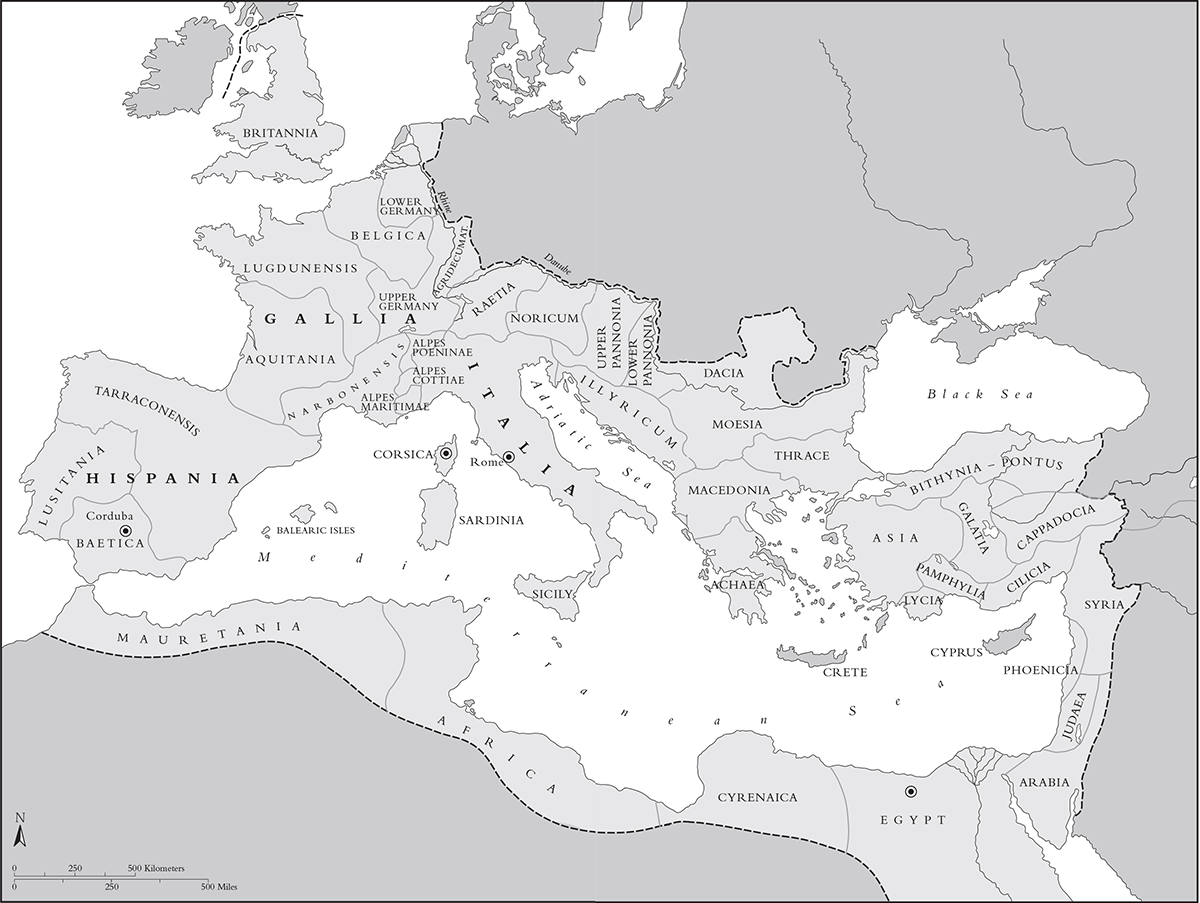
Font size:
Interval:
Bookmark:
Similar books «Seneca: A Life»
Look at similar books to Seneca: A Life. We have selected literature similar in name and meaning in the hope of providing readers with more options to find new, interesting, not yet read works.
Discussion, reviews of the book Seneca: A Life and just readers' own opinions. Leave your comments, write what you think about the work, its meaning or the main characters. Specify what exactly you liked and what you didn't like, and why you think so.

